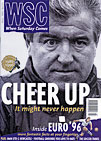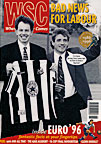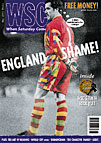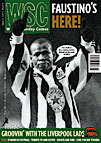 Cris Freddi looks back at the highs and lows of the European Championship. Guess which category England appear most in
Cris Freddi looks back at the highs and lows of the European Championship. Guess which category England appear most in
1960: USSR 2, Yugoslavia 1 aet (Paris)
The Soviets were a little lucky to reach the last four, the Fascist government having withdrawn Spain from the quarter-final, but once there they were generally in charge, conceding only one goal in the two matches while wearing down the Czechs (3-0) and the skilful Yugoslavs, their big centre-forward Viktor Pondelnik scoring the winner in extra time. Yugoslavia consoled themselves by winning the Olympic title later that year. To no-one’s surprise, then or now, none of the British countries entered.
Player of the tournament: Lev Yashin, prominent in match reports and beaten only once by a deflection from his captain Igor Netto.
Cock-up of the tournament: Anything by the French defence. Leading 4-2 with a quarter of an hour to go in the semi-final with Yugoslavia, they concede three in three minutes.


